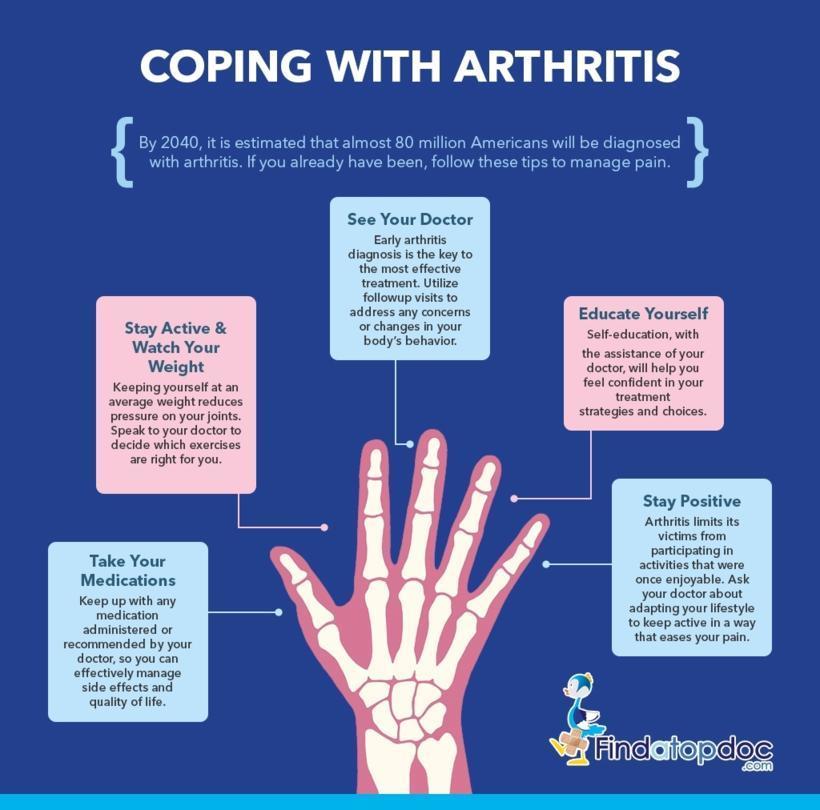
How to Cope with Arthritis Pain
Arthritis is a leading cause of pain and disability worldwide. By 240, it is estimated that almost 80 million Americans will be diagnosed with arthritis.You can find plenty of advice about easing the pain of arthritis and other conditions with exercise, medication and stress reduction. How do you know what will work best for you? If you already have been diagnosed with arthritis, follow these tips to manage pain:
Stay active and watch your weight
Keeping yourself at an average weight reduces pressure on your joints. Speak to your doctor to decide which exercises are right for you. Being overweight can increase complications of arthritis and contribute to arthritis pain. Making incremental, permanent lifestyle changes resulting in gradual weight loss is often the most effective method of weight management. Choose the right kinds of activities — those that build the muscles around your joints but don't damage the joints themselves. A physical or occupational therapist can help you develop an exercise program that's right for you.
How to Cope with Arthritis Pain
Keep up with any medication administered or recommended by your doctor, so you can effectively manage side effects and quality of life. Many different types of medications are available for arthritis pain relief. Most are relatively safe, but no medication is completely free of side effects. Talk with your doctor to formulate a medication plan for your specific pain symptoms. Over-the-counter pain medications, such as acetaminophen (Tylenol, others) or ibuprofen (Advil, Motrin IB, others), can help relieve occasional pain triggered by activity your muscles and joints aren't used to — such as gardening after a winter indoors.
Stay positive
Arthritis limits its victims from participating in activities that were once enjoyable. Ask your doctor about adapting your lifestyle to keep active in a way that eases your pain. Find ways to relax. Meditating, doing yoga, deep breathing, listening to music, being in nature, writing in a journal or whatever works for you. There's no downside to relaxation, and it can help ease pain.
Educate yourself
Self-education, with the assistance of your doctor, will help you feel confident in your treatment strategies and choices. Ask your doctor for a clear definition of the type of arthritis you have. It is also recommendable to find out whether any of your joints are already damaged. The more you know, the better you can take care of yourself.
See your doctor
Early arthritis diagnosis is the key to the most effective treatment. Utilize follow-up visits to address any concerns or change in your body’s behavior. Talk to your doctor about your symptoms, arthritis related or not. Sometimes seemingly unrelated problems are, in fact, connected. Give your doctor complete information about your medical conditions and medications, including over-the-counter medications and supplements.
Arthritis is a painful and degenerative condition marked by inflammation in the joints that causes stiffness and pain. Osteoarthritis, the most common type of arthritis, gets worse with age and is caused by wear and tear over the years. Taking control of your arthritis or other chronic disease takes effort. Use these 5 self-management tips that will help you live successfully with arthritis.


